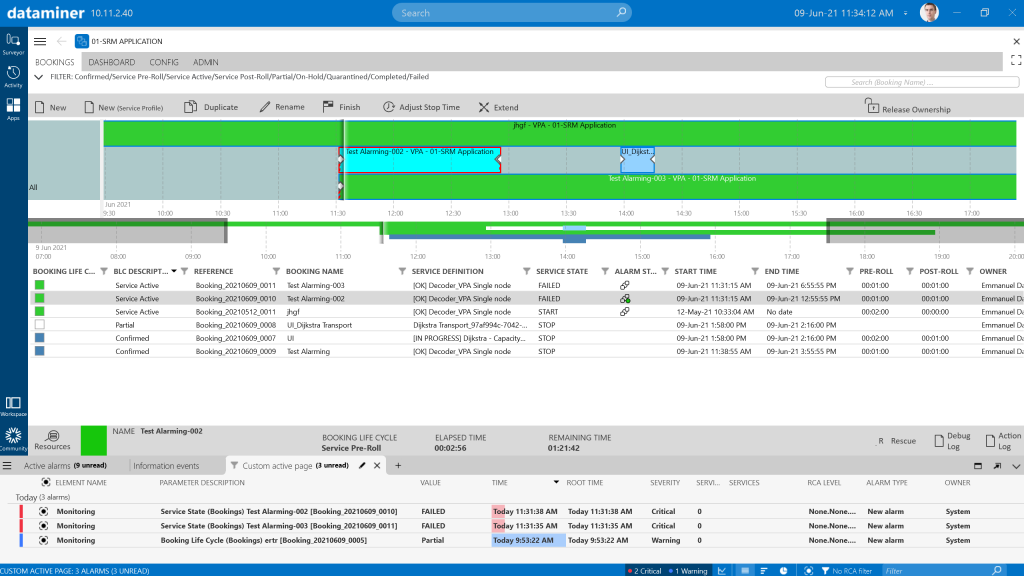The next version of the SRM framework, SRM 1.2.14, is now available. This update again contains great features that will bring added value to your operations.

When a booking is live, a DataMiner service is dynamically created to bubble up any alarms generated on the virtual function part of the booking. These alarms have now been extended with a regular DataMiner alarm in case the orchestration fails. This will cover several use cases, such as situations where a device did not accept a configuration. As it is a regular DataMiner alarm, all existing features such as notifications or correlation can be used to report the incident or take a corrective action.
We’ve also extended the set of features around the selection of a path between a source and destination in a complex network by means of the Dijkstra algorithm:
- To support geo-redundancy, we’ve added an option to give priority to paths that don’t re-use the same hops when a backup path is selected.
- To make it easier to add destinations to an existing booking, an internal API call is now available that adds an extra destination and selects a path to reach that destination.
For a complete list of the features and enhancements of SRM 1.2.14, please check the release notes.
A great set of features, again! The new functionality for the Dijkstra path selection might look easy at first sight, but it is surely more than just excluding booked interfaces already. Not only will it be smart enough to avoid booking a secondary path that is passing through devices which have another interface already booked in the primary path, it will also look to weigh re-using a device against the option of going around the world and heavily increasing the cost. So, surely much more than just including and excluding, actually presenting you with the best possible path for both primary and secondary. Combine this with a possibility to add a backup path on a running booking, just updating your booking to add a backup path at any moment in time, nice!